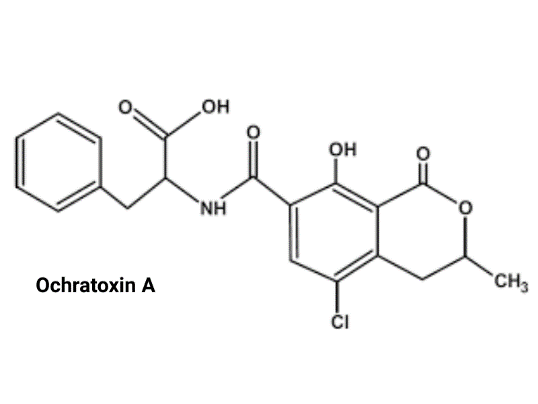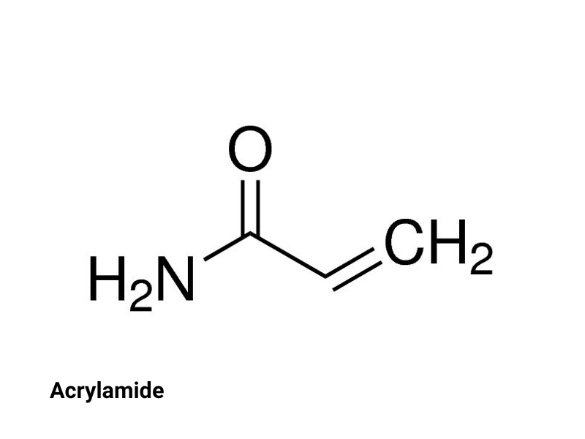2025.12.09
Coffee is one of the most popular beverages in the world. According to statistics, global coffee consumption is expected to reach approximately 7.47 billion kilograms by 2025, with consumption in Iran reaching 18.99 million kilograms. Since domestic production is not feasible, coffee is imported from countries like Brazil, Vietnam, Colombia, Indonesia, and other coffee-producing nations. To ensure the safety of imported coffee just like other imported goods inspections are carried out. In some cases, the country of origin may perform necessary tests and send the results along with the product. Additionally, further tests may be conducted upon arrival to ensure safety.

Some Potential Risks in Coffee and Their Effects on Health
- Ochratoxin A
Ochratoxin A is a dangerous fungal toxin (mycotoxin) that can be produced by Aspergillus and Penicillium species during drying, storage, and transport of coffee beans, especially when humidity exceeds 12.5% and the temperature is above 20°C.

Coffee is typically transported via sea freight. There is a risk of increased humidity and temperature during sea transport or long-term storage in warehouses, which can lead to contamination with ochratoxin A.
For example, if coffee beans are not stored properly after harvesting and drying i.e., with uncontrolled humidity and temperature fungal growth and toxin production can begin at the origin. Even if the product is shipped in good condition, long sea voyages with poor ventilation or temperature/humidity fluctuations can allow fungal contamination. Furthermore, even if coffee arrives healthy, long-term storage at the destination under poor environmental conditions (such as high humidity and heat) can again lead to fungal growth and ochratoxin A production.
Consuming coffee contaminated with ochratoxin A can seriously threaten human health. This toxin is absorbed through the digestive system and can damage vital organs such as the liver and kidneys. Due to its carcinogenic properties, the International Agency for Research on Cancer (IARC) has classified ochratoxin A as a Group 2B substance possibly carcinogenic to humans.
Ochratoxin A is resistant to high temperatures and is not completely destroyed during the roasting process. Therefore, preventing contamination of coffee beans with ochratoxin A is crucial.
- Pesticide Residues
Like other agricultural products, coffee is susceptible to pests and diseases. To manage these problems, pesticides are used during various stages of cultivation. Due to coffee’s monoculture farming and low biodiversity, pest outbreaks may be more common compared to other crops.
Some major coffee pests include the green coffee scale insect, which weakens the plant by sucking its sap, and the coffee berry borer, which lays eggs inside the fruit and damages the beans.
Coffee farmers often use pesticides such as cypermethrin, deltamethrin, chlorpyrifos, carbaryl, and malathion. In some cases, to speed up harvesting and selling, farmers may neglect the pre-harvest interval the time required between the last pesticide application and harvesting leading to pesticide residues remaining in the beans.
Consuming coffee contaminated with chemical pesticides can pose health risks such as skin or respiratory irritation, headaches, nausea, dizziness, digestive issues, and, with chronic exposure, adverse effects on the hormonal and nervous systems.
- Acrylamide
Acrylamide forms naturally in coffee beans during roasting at temperatures above 120°C. During this process, the carbohydrates in the beans break down into simple sugars, which then react with the amino acid asparagine, ultimately producing acrylamide.

Acrylamide is a chemical compound identified in 2010 by the Joint FAO/WHO Expert Committee on Food Additives (JECFA) as a serious health concern. The U.S. Food and Drug Administration (FDA) has also provided data indicating that acrylamide may cause cancer and neurological disorders.
- Common Coffee Frauds
In the coffee industry, as in many others, some individuals commit fraud to reduce costs and increase profits. While these actions may not always pose health risks, they are still considered deceptive practices due to lack of consumer awareness
- Expiration Date Alteration
One of the most common frauds is changing the expiration date. For bulk coffee, which often lacks printed expiration dates, some sellers market old coffee as fresh. This isn’t limited to bulk coffee sometimes even packaged coffee has its expiration date altered by sellers or manufacturers. This deceives consumers and can reduce the coffee's flavor and aroma, and in some cases cause digestive issues like bloating or stomach discomfort.
- Mixing Coffee with Other Substances
Ground coffee is sometimes mixed with substances like corn powder or date seeds to increase volume. This is misleading to consumers and reduces the coffee’s aroma and flavor.
- Adding Extra Caffeine
Adding synthetic caffeine is another form of fraud, aimed at appealing to consumers looking for highly caffeinated products. However, this can pose health risks. According to the FDA, the maximum safe caffeine intake for adults is about 400 mg per day. Exceeding this limit can lead to side effects like heart palpitations, insomnia, anxiety, and even serious cardiovascular issues.
- Adding Flavors
Some sellers add artificial flavors like coffee or vanilla essence to improve aroma and taste, often to mask staleness. While these coffees may seem appealing, the added chemicals can cover the natural flavor and, depending on the type and amount used, may cause health issues like gastrointestinal irritation or allergic reactions.
Note: According to standards, adding artificial flavors to coffee is prohibited because it deceives consumers and misrepresents the product’s true quality and flavor.
Final Word
With the increasing global consumption of coffee, ensuring the safety and quality of this product is more important than ever. Coffee can contain harmful substances, which is why food testing labs assess it for levels of ochratoxin A, pesticide residues, caffeine content, and the presence of colorants or artificial flavors.
Consumers are advised to choose packaged coffee with standard certification and, if opting for bulk coffee, ensure it is purchased from reputable and licensed sources.


